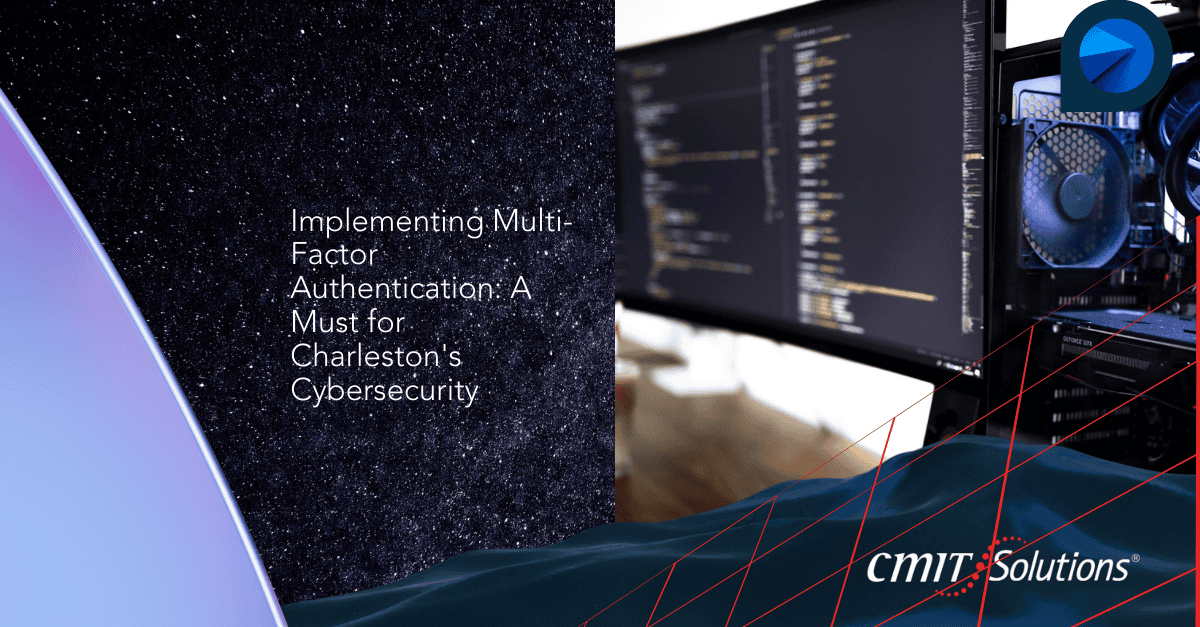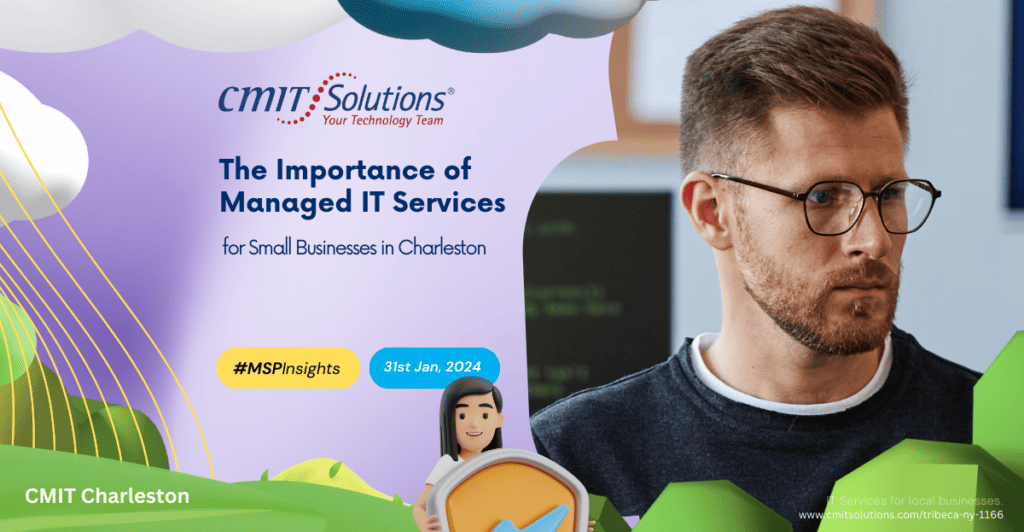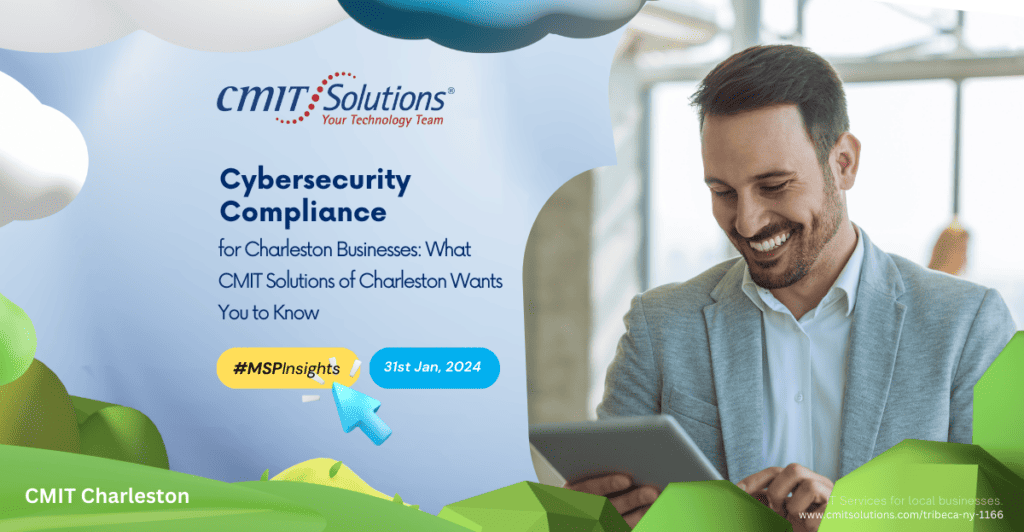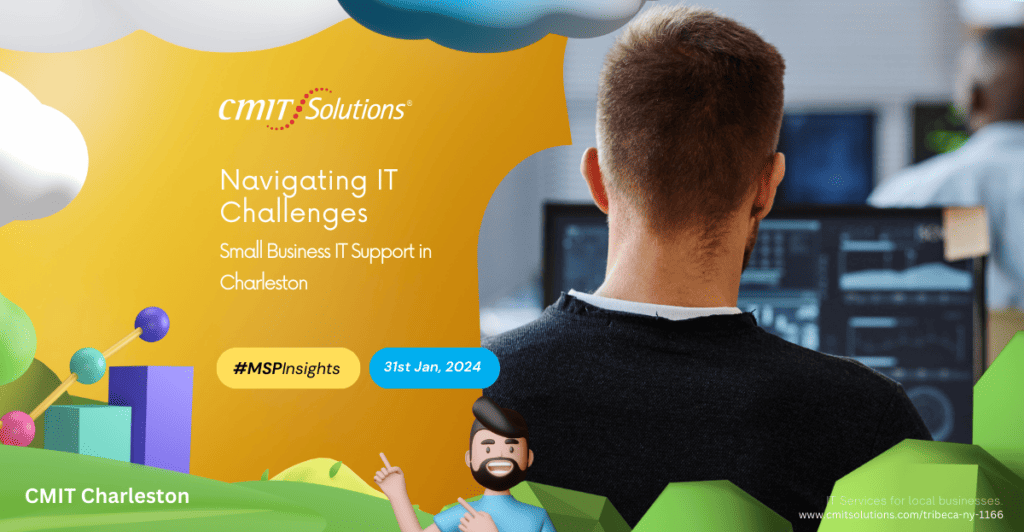In an age where cyber threats are becoming increasingly sophisticated, the need for robust security measures has never been more critical. For businesses in Charleston, ensuring the safety of sensitive information and digital assets is paramount.“rohrreinigung wien“ One of the most effective ways to enhance cybersecurity is by implementing Multi-Factor Authentication (MFA). This blog explores why MFA is essential and how CMIT Charleston can help you bolster your cybersecurity defenses.
The Growing Threat Landscape
Cybersecurity threats are evolving at an alarming rate, with hackers employing more advanced techniques to breach security systems. In Charleston, businesses of all sizes are potential targets. From phishing attacks to ransomware, the risks are ever-present. Implementing MFA adds an extra layer of security, making it significantly harder for unauthorized users to gain access to your systems.
What is Multi-Factor Authentication?
Multi-Factor Authentication (MFA) is a security process that requires users to provide two or more verification factors to gain access to a resource such as an application, online account, or VPN. Rather than just asking for a username and password, MFA requires additional information, which could be something you know (a password), something you have (a security token), or something you are (biometric verification).
Benefits of MFA for Businesses
Implementing Multi-Factor Authentication (MFA) offers numerous benefits for businesses, enhancing their overall security posture and ensuring compliance with regulatory standards. Here, we delve deeper into the key advantages that MFA provides to businesses of all sizes.
Enhanced Security
MFA significantly reduces the risk of unauthorized access by adding multiple layers of verification. Traditional password-based authentication methods are inherently vulnerable, as passwords can be easily compromised through phishing attacks, social engineering, or brute-force attempts. MFA mitigates these risks by requiring additional authentication factors that are not as easily breached.
For instance, even if an attacker manages to obtain a user’s password, they would still need the second factor—such as a fingerprint, a hardware token, or a one-time passcode sent to a registered device—to gain access. This extra layer of security acts as a robust barrier, making it exponentially more difficult for intruders to infiltrate your systems.
Moreover, MFA can be tailored to meet the specific security needs of your organization. Businesses can choose from various authentication factors, including biometric verification (fingerprints, facial recognition), possession-based factors (security tokens, mobile devices), and knowledge-based factors (PINs, security questions). This flexibility allows companies to implement the most appropriate and effective security measures for their unique environment.
Compliance with Regulations
Many industries have stringent compliance requirements regarding data security and privacy. Regulations such as the General Data Protection Regulation (GDPR), the Health Insurance Portability and Accountability Act (HIPAA), and the Payment Card Industry Data Security Standard (PCI DSS) mandate robust security measures to protect sensitive information. Implementing MFA helps ensure that your business meets these regulatory requirements, thereby avoiding potential fines and legal issues.
Failure to comply with data protection regulations can result in severe financial penalties and damage to your company’s reputation. By adopting MFA, businesses demonstrate their commitment to protecting sensitive data and adhering to industry standards. This proactive approach not only safeguards your organization from legal repercussions but also enhances your credibility and trustworthiness in the eyes of customers, partners, and regulators.
Protection Against Phishing
Phishing attacks are a prevalent and growing threat in the cybersecurity landscape. These attacks often involve deceptive emails or messages that trick employees into divulging their login credentials. Once attackers obtain these credentials, they can access sensitive systems and data, leading to significant security breaches and financial losses.
MFA provides a powerful defense against phishing attacks by adding an additional layer of verification that attackers cannot easily bypass. Even if an employee inadvertently falls for a phishing scam and reveals their password, the second factor required by MFA—such as a fingerprint scan or a code sent to a mobile device—prevents the attacker from gaining access.
This protection extends beyond just phishing attacks. MFA also safeguards against other forms of credential theft, such as keylogging and man-in-the-middle attacks, further enhancing your organization’s security.
Improved User Confidence
In today’s digital age, customers and clients are increasingly aware of cybersecurity threats and the importance of data protection. Demonstrating that your business uses MFA to protect their data can significantly enhance their trust and confidence in your organization.
When customers know that their personal and financial information is safeguarded by robust security measures, they are more likely to engage with your business and remain loyal over time. This trust can translate into stronger business relationships, increased customer retention, and positive word-of-mouth referrals.
Additionally, implementing MFA can improve internal user confidence. Employees are more likely to adopt and adhere to security practices when they understand that MFA protects not only the company’s data but also their personal information. This heightened awareness and participation in security measures can foster a culture of cybersecurity within the organization, where every member is committed to maintaining a secure environment.
Operational Efficiency and Cost Savings
While the primary goal of MFA is to enhance security, it also offers operational benefits. By reducing the likelihood of security breaches, businesses can avoid the costly and time-consuming process of responding to and recovering from incidents. Data breaches often require significant resources to address, including forensic investigations, legal fees, and public relations efforts to mitigate damage to the company’s reputation.
Furthermore, MFA can streamline the authentication process for users. Modern MFA solutions are designed to be user-friendly and can integrate seamlessly with existing systems. Features such as single sign-on (SSO) combined with MFA allow users to access multiple applications with a single, secure login, improving productivity and reducing the burden of managing multiple passwords.
In the long run, the investment in MFA can lead to substantial cost savings by preventing data breaches and reducing the associated expenses. This financial benefit, coupled with the enhanced security and compliance advantages, makes MFA a valuable addition to any business’s cybersecurity strategy.
Implementing MFA with CMIT Charleston
Assessment and Planning
We begin with a thorough assessment of your current security infrastructure to identify vulnerabilities and determine the best MFA solution for your needs.
Custom Solutions
CMIT Charleston offers customized MFA solutions that integrate seamlessly with your existing systems. Whether you need SMS-based authentication, hardware tokens, or biometric verification, we have the expertise to implement it.
User Training and Support
Implementing MFA is not just about technology; it’s also about people. We provide comprehensive training for your staff to ensure they understand how to use MFA and the importance of cybersecurity best practices.
Continuous Monitoring and Maintenance
Cybersecurity is an ongoing process. CMIT Charleston offers continuous monitoring and maintenance services to ensure that your MFA implementation remains effective against emerging threats.
Real-World Impact
Consider the case of a local Charleston business that recently experienced a phishing attack. Despite having strong passwords, the attackers managed to gain access to their system, causing significant disruption. After partnering with CMIT Charleston to implement MFA, the business has seen a marked improvement in their security posture. They now have peace of mind knowing that their sensitive information is protected by multiple layers of security.
Understanding Different Types of MFA
MFA can come in various forms, each with its own strengths and use cases:
- SMS-Based Authentication: Users receive a one-time code on their mobile phone.
- Email-Based Authentication: Similar to SMS but delivered via email.
- Hardware Tokens: Physical devices that generate authentication codes.
- Software Tokens: Apps on a smartphone that generate authentication codes.
- Biometric Verification: Uses fingerprint, facial recognition, or other biometric data.
- Push Notifications: Prompts sent to a user’s smartphone to approve access.
MFA Integration with Existing Systems
Integrating Multi-Factor Authentication (MFA) with existing systems can be seamless with the right approach, and CMIT Charleston is committed to ensuring compatibility and minimal disruption during implementation. Our team begins by conducting a comprehensive analysis of your current IT infrastructure to understand the specific requirements and potential challenges. This detailed assessment allows us to design a tailored MFA integration strategy that aligns with your business processes and technological environment.
One of the key aspects of a successful MFA integration is ensuring that it does not interfere with the daily operations of your business. CMIT Charleston employs industry best practices and advanced tools to integrate MFA smoothly with your existing applications, networks, and systems. This might involve customizing authentication workflows, configuring compatibility settings, and conducting extensive testing to ensure that the integration is flawless.
Moreover, we understand that different businesses have unique needs. Therefore, we offer a variety of MFA methods, including SMS-based authentication, hardware tokens, biometric verification, and software tokens, to ensure that the chosen solution fits seamlessly into your existing infrastructure. Our team also works closely with your IT staff to address any technical concerns and provide the necessary support throughout the integration process.
To further ensure a smooth transition, CMIT Charleston offers comprehensive training programs for your employees. This training helps them understand how to use the new MFA system effectively and appreciate the importance of enhanced security measures. By focusing on both the technical and human aspects of MFA integration, we ensure a seamless and successful implementation that bolsters your overall cybersecurity posture.
Overcoming Common MFA Challenges
Some businesses may face challenges such as user resistance or technical issues when implementing MFA. CMIT Charleston provides solutions and support to overcome these hurdles effectively, ensuring that your MFA implementation is successful and well-received.
User resistance is a common challenge, often stemming from concerns about the added complexity and perceived inconvenience of MFA. To address this, CMIT Charleston emphasizes clear communication and education. We explain the importance of MFA in protecting sensitive information and highlight the benefits of the additional security it provides. By demonstrating how MFA can prevent data breaches and secure personal and business data, we help users understand its value and necessity.
In addition to education, we focus on user-friendly implementation. We select MFA methods that are easy to use and integrate seamlessly with daily operations. For example, biometric authentication, such as fingerprint or facial recognition, can provide a quick and convenient second factor of authentication without requiring additional devices or steps. We also offer customizable solutions to fit the specific needs and preferences of your users, making the transition as smooth as possible.
Technical issues are another potential challenge in MFA implementation. These can include compatibility problems with existing systems, integration complexities, and potential performance impacts. CMIT Charleston addresses these issues through a thorough assessment of your IT infrastructure and careful planning of the integration process. We use advanced tools and techniques to ensure that MFA solutions are compatible with your existing systems and that any potential disruptions are minimized.
Our team of experts provides ongoing support to resolve technical issues promptly and effectively. This includes regular monitoring and maintenance of the MFA system to ensure it remains functional and secure. By addressing both user resistance and technical challenges, CMIT Charleston ensures a successful MFA implementation that enhances your cybersecurity without causing significant disruptions.
The Cost-Benefit Analysis of MFA
While there is a cost associated with implementing MFA, the benefits far outweigh the expenses. The potential losses from data breaches can be catastrophic compared to the investment in robust security measures. Understanding the cost-benefit analysis of MFA is crucial for businesses considering its implementation.
The upfront costs of MFA implementation include purchasing the necessary software and hardware, integrating MFA with existing systems, and training employees. These costs can vary depending on the size of the business and the complexity of the IT infrastructure. However, these initial investments are justified by the significant reduction in the risk of data breaches and unauthorized access.
Data breaches can have severe financial implications, including direct costs such as fines, legal fees, and compensation to affected parties, as well as indirect costs such as reputational damage, loss of customer trust, and business disruption. Studies have shown that the average cost of a data breach can run into millions of dollars, making the investment in MFA a cost-effective security measure.
Implementing MFA also has operational benefits. By enhancing security, businesses can prevent unauthorized access and protect sensitive information, thereby maintaining the integrity and confidentiality of their data. This protection extends to customer data, ensuring compliance with data protection regulations and avoiding potential fines and legal issues.
Moreover, MFA can improve operational efficiency by reducing the time and resources spent on managing security incidents. With fewer breaches and security threats to deal with, IT teams can focus on other critical tasks and projects, driving overall business productivity.
In addition to financial and operational benefits, implementing MFA demonstrates a commitment to cybersecurity, enhancing your reputation among customers, partners, and stakeholders. This increased trust can lead to stronger business relationships and new opportunities.
Future-Proofing Your Business with MFA
As cyber threats continue to evolve, having MFA in place is a crucial step towards future-proofing your business. Continuous updates and advancements in MFA technology ensure long-term protection, making it a vital component of your cybersecurity strategy.
Cybersecurity threats are constantly changing, with attackers developing new techniques and methods to breach security systems. MFA provides an adaptive and scalable security solution that can evolve to meet these emerging threats. By implementing MFA, businesses can stay ahead of cybercriminals and protect their sensitive data from unauthorized access.
Future-proofing your business with MFA involves staying updated with the latest advancements in authentication technology. This includes adopting new MFA methods such as advanced biometrics, behavioral analytics, and contextual authentication. These innovative approaches provide even greater security by adding additional layers of verification and making it more difficult for attackers to gain access.
Continuous monitoring and maintenance are essential for ensuring the effectiveness of MFA over time. CMIT Charleston offers ongoing support to keep your MFA implementation up-to-date and responsive to new threats. This includes regular software updates, security patches, and system audits to identify and address potential vulnerabilities.
In addition to technological advancements, future-proofing your business with MFA also involves fostering a culture of cybersecurity awareness. CMIT Charleston provides comprehensive training programs to educate your employees about the importance of MFA and other cybersecurity best practices. By promoting a security-conscious mindset, businesses can reduce the risk of human error and enhance overall security.
Implementing MFA also helps businesses comply with evolving regulatory requirements. Data protection regulations are becoming increasingly stringent, with many industries mandating the use of MFA to protect sensitive information. By adopting MFA, businesses can ensure compliance with these regulations and avoid potential fines and legal issues.
Overall, future-proofing your business with MFA is a proactive approach to cybersecurity that provides long-term protection against evolving threats. By staying updated with the latest advancements in authentication technology and promoting a culture of cybersecurity awareness, businesses can safeguard their sensitive data and maintain their reputation in an increasingly digital world.
Case Studies and Success Stories
Real-world examples of businesses that have successfully implemented MFA with CMIT Charleston highlight the practical benefits and positive outcomes of enhanced security measures. These case studies and success stories demonstrate the transformative impact of MFA on business security and provide valuable insights into the implementation process.
Consider the case of a mid-sized financial services company in Charleston that faced a significant phishing attack. Despite having strong password policies, attackers managed to gain access to their systems and steal sensitive customer information. This breach resulted in financial losses and damage to the company’s reputation. After partnering with CMIT Charleston to implement MFA, the company experienced a dramatic improvement in their security posture. The added layer of authentication prevented unauthorized access and protected their sensitive data from future attacks.
Another success story involves a local healthcare provider that struggled with compliance issues related to data protection regulations. The provider faced potential fines and legal issues due to inadequate security measures. CMIT Charleston implemented a customized MFA solution that ensured compliance with industry regulations and provided robust protection for patient data. The healthcare provider not only avoided fines but also enhanced their reputation by demonstrating a commitment to data security.
A retail business in Charleston also benefited from MFA implementation. The business had experienced multiple instances of account takeovers, resulting in financial losses and customer dissatisfaction. CMIT Charleston implemented MFA with biometric verification, significantly reducing the risk of unauthorized access. The business saw an immediate improvement in security and customer trust, leading to increased sales and customer retention.
These case studies illustrate the tangible benefits of MFA, including enhanced security, regulatory compliance, and improved user confidence. They also highlight the importance of partnering with a knowledgeable and experienced provider like CMIT Charleston to ensure a successful implementation.
Conclusion
In today’s digital landscape, relying solely on passwords for security is no longer sufficient. Multi-Factor Authentication is a critical component of a robust cybersecurity strategy. For businesses in Charleston, implementing MFA can mean the difference between a secure environment and a devastating breach. CMIT Charleston is here to help you navigate the complexities of cybersecurity and ensure that your business is protected against the ever-growing threat landscape.
Ready to enhance your cybersecurity with MFA? Contact CMIT Charleston today and take the first step towards a more secure future. By partnering with us, you can leverage our expertise and experience to build a strong, resilient security framework that protects your business from emerging threats.





